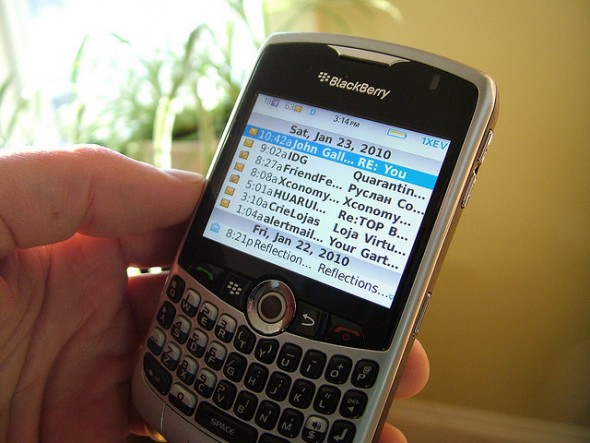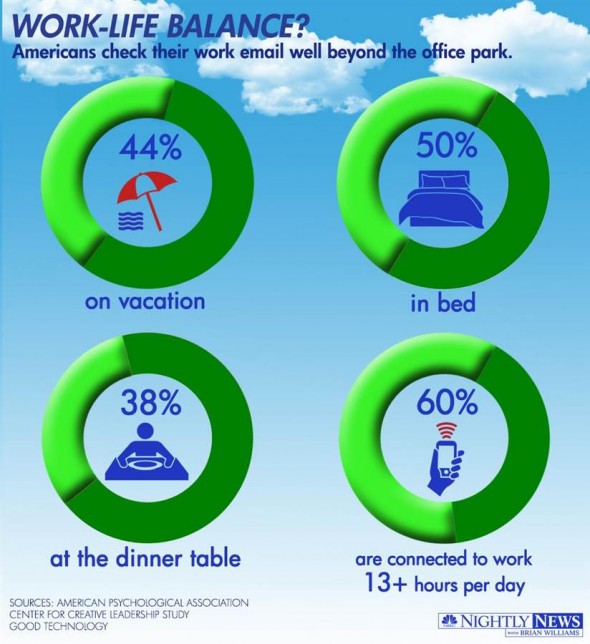The smartphone: the device that changed the way we work at home. I have a smartphone, you have a smartphone. You might even be reading this on a smartphone. And if you are, will you exit because you finished reading my post, or because an email notification invaded your screen?
The consequences of ignoring emails until tomorrow morning at 8 a.m. seem to be so pressing, people are actually voluntarily work off the clock for free, from home, on email.

I get both sides. I’ve emailed my professors or boss off-hours with questions I feel are important for now. I’ve also been the recipient of 11 p.m. emails, and gotten a talking to for not having fixed the problem before my 8 a.m. meeting.
American’s actually work more than anyone else, and it’s not just obvious when kids come home from school to an empty house, but also when parents come home to keep working. They work so much, the phrase “workaholic” was actually added to the dictionary, and later discovered to inhibit your work performance.
So how does continuing to work off the clock help? It doesn’t. Is problem-solving work issues via email considered working? Yes.
I’ve learned where to draw the line. The line is not to cave to the demands of a work for a workaholic boss. Working under the madness taught me a lot about my limits, values, and stance on my work and, most importantly, that I don’t like working for one. The brigade of emails daily was overwhelming as an employee, making me feel less valued as a team member, and more a means to my boss’s end.

I also learned, however, how to manage my off-time and emails. I’m on email all day for reasons other than work, so if something pops up from my boss, I make a quick judgement call. Based off the preview, if it’s something small that I’d answer for a coworker or friend, it may be worth messing with, for free, off the clock. But anything more than a simple question, if it requires my skills– the one’s I’m being paid to provide– I leave it for tomorrow after I clock in.

Nice! It’d be interesting to see a study that correlates the invention of email to the increasing use of the word “workaholic.” Everyone is constantly digitally connected, which in turn means we are always both socially and professionally available. It’s hard to find the right balance, but I loved your last sentence, and I totally agree that anything that requires work can wait until work!
This is the great conundrum of a modern journalist. On the one hand, the new media ecosystem has made being a journalist incredibly easy. But on the other hand, being constantly connected has meant that we are, essentially working all the time. You grapple with this question well and I appreciated the insights you provide here.
Technology changed dramatically the way we work, and I think that we impose our own deadlines, when it comes to answer a professional email. I always try to answer them as soon as possible, so I wouldn’t forget about it. You’re doing a very good job in explaining your own “tactics”.